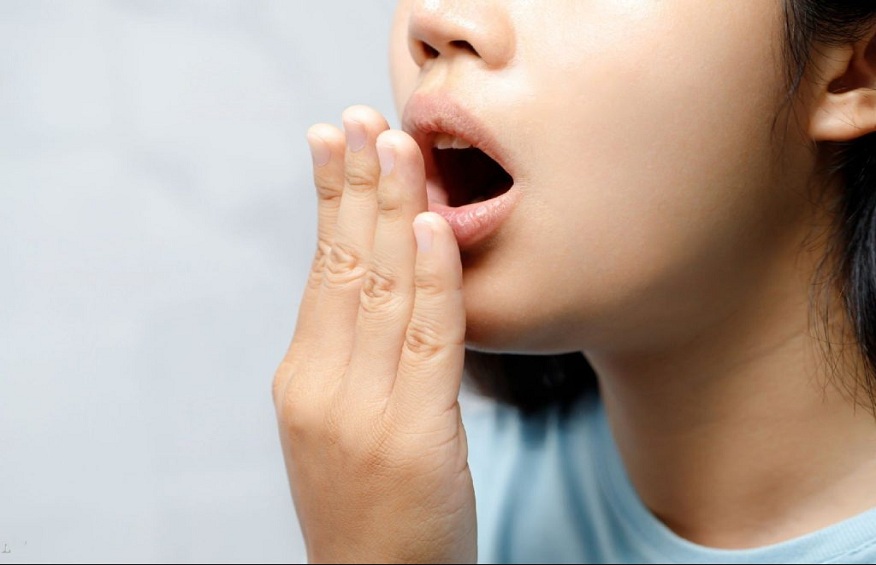Halitosis, commonly known as bad breath, can be a source of embarrassment and social discomfort for many individuals. It’s a prevalent problem affecting people of all ages. While occasional bad breath can be attributed to certain foods or habits, chronic halitosis often indicates an underlying issue that requires attention. This blog will help you choose the best halitosis treatment option when searching for “halitosis treatment near me.”
Conventional Treatments
Oral Hygiene: The most basic and effective way to combat bad breath is to maintain good oral hygiene. Regular brushing, flossing, and tongue cleaning can remove food particles and bacteria that lead to odorous breath.
Mouthwash: Antiseptic mouthwashes can help kill bacteria in the mouth and temporarily freshen breath. However, they are not a long-term solution and should be used in conjunction with other oral hygiene practices.
Dietary Adjustments: Avoiding foods like garlic, onions, and spicy dishes can help reduce temporary bad breath. Additionally, staying hydrated and chewing sugar-free gum or mints can stimulate saliva production, which naturally cleanses the mouth.
Dental Check-Ups: Regular visits to the dentist are crucial to identify and treat underlying dental problems like cavities or gum disease that may be causing bad breath.
Prescription Medications: In some cases, your dentist or physician may prescribe antibiotics or other medications to address specific issues contributing to halitosis.
Laser Therapy for Halitosis
While conventional treatments can be effective in managing bad breath, laser therapy represents an innovative approach that is gaining popularity for its precision and minimally invasive nature. Here’s what you need to know before searching for “halitosis laser treatment near me”:
How Laser Therapy Works?
Laser therapy for halitosis involves the use of specialized dental lasers to target and eliminate bacteria that cause bad breath. This therapy can address the following oral issues:
- Gum Disease: Laser therapy can effectively treat gum disease (periodontitis) by removing infected tissue and promoting gum healing. Healthy gums play a vital role in preventing bad breath.
- Tongue Coating: Laser therapy can be used to remove the thick coating on the tongue, which is a common source of odor-causing bacteria.
- Cavities: Lasers can be used for precise cavity preparation and dental restorations, preventing decay from contributing to bad breath.
Advantages of Laser Therapy:
- Precision: Laser therapy is incredibly precise, targeting only the affected areas without harming healthy tissue.
- Minimally Invasive: It is less invasive compared to traditional surgical procedures, resulting in less discomfort and a quicker recovery.
- Reduced Bleeding: Laser therapy often leads to minimal bleeding during procedures.
- Bacterial Elimination: Laser therapy effectively kills bacteria, reducing the likelihood of recurrent bad breath.
Post-Laser Therapy Care and Maintenance:
After undergoing laser therapy for halitosis, it’s essential to follow post-treatment care instructions provided by your dentist or oral surgeon. This helps ensure the best possible outcome and prevents a recurrence of bad breath. When you are searhin for “halitosis treatment dentist near me,” make sure that you are ready to adhere to these post-therapy care routine. Here are some general guidelines:
- Oral Hygiene: Continue to maintain excellent oral hygiene practices, including regular brushing, flossing, and tongue cleaning. Your dentist may recommend a specific oral care routine tailored to your needs.
- Hydration: Stay adequately hydrated to promote saliva production, which naturally cleanses the mouth and helps prevent bacterial growth.
- Diet: Avoid foods and beverages that can contribute to bad breath, such as garlic, onions, and sugary snacks. Opt for a balanced diet rich in fruits and vegetables.
- Regular Dental Check-Ups: Schedule regular dental check-ups to monitor your oral health and address any emerging issues promptly. This is especially important after laser therapy to ensure the treated areas are healing correctly.
- Prescribed Medications: If your dentist has prescribed any medications, follow the prescribed regimen carefully.
- Lifestyle Changes: If lifestyle factors like smoking or alcohol consumption contribute to bad breath, consider making changes to reduce or eliminate these habits.
- Follow-Up Appointments: Attend any follow-up appointments as recommended by your halitosis treatment dentist to assess your progress and address any concerns.
Conclusion:
Halitosis can be a persistent and embarrassing condition, but it’s important to remember that effective treatments are available. Conventional methods like maintaining good oral hygiene, regular dental check-ups, and dietary adjustments remain crucial in managing bad breath. However, for those seeking innovative and minimally invasive options, laser therapy provides an exciting alternative. Always consult with a qualified healthcare professional or dentist to determine the best treatment plan for your specific case of halitosis. Regardless of the chosen treatment, addressing bad breath not only enhances oral health but also boosts confidence and overall well-being.

